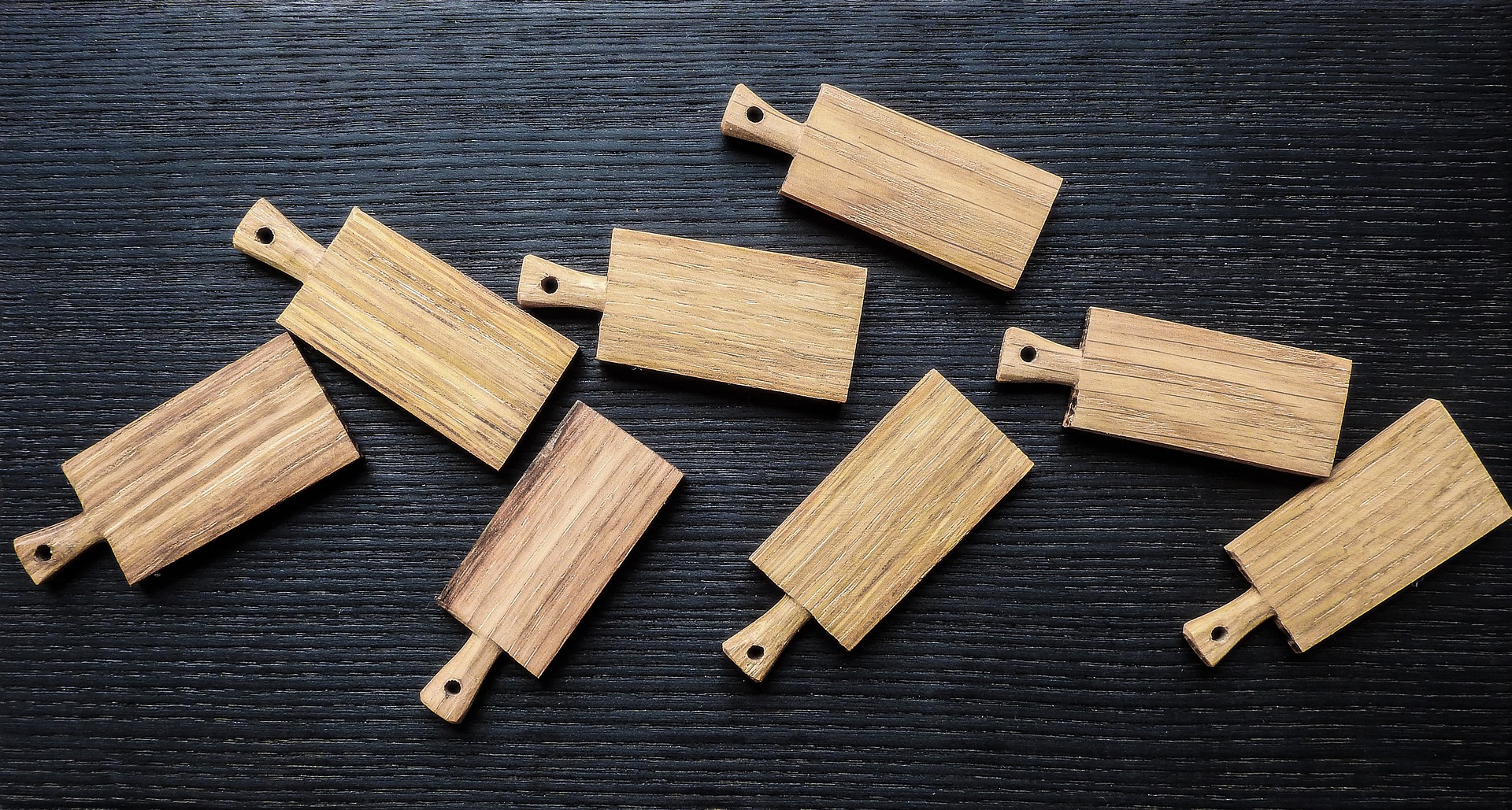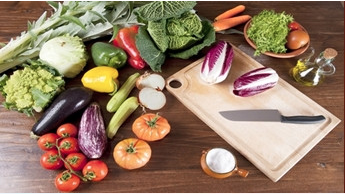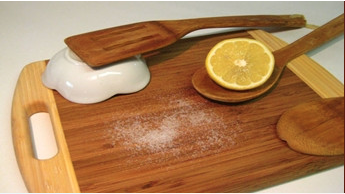
RECOMMENDATIONS:
1. The chopper should be treated with oil once a month or periodically. Use natural mineral oil or sunflower oil. Remove the surplus oil. You will increase the lifetime of the chopper for several years. For some shredders, such as bread specials, oiling is not necessary as it does not require washing.
2. Wash with a sponge in clean, warm water. Clean both surfaces with a dry wipe and dry thoroughly. A mineral oil can be applied at this time.
3. Keep it seated on an edge or hanging on the wall.
4. Always clean the chopper thoroughly after cleaning or cutting the fish on the work surface.
5. It is recommended to use both sides of the chopper for longer use.
6. Scratches can easily be removed by grinding, then clean and lubricate.
CAUTION:
1. The shredder shouldn’t be kept in places with extreme humidity, heat or dryness, as it may suffer physical changes, with small cracks, usually at the ends.
2. Do not wash in the dishwasher, it is natural wood and it can crack.
3. WARNING: Do not leave near excessive heat sources (stove) without proper insulation between the heat source and the edge of the chopper.
4. Do not leave meat or other damp products on the chopper longer than necessary.
5. Do not cut continuously at the same place on the work surface, distribute the cutting over the entire surface, so it will wear out evenly.
6. Never wash the chopper with detergents of any kind.

USING WOOD KITCHEN CHOPPERS
To preserve food safely and avoid cross-contamination (eg bacteria from raw meat with fruits or vegetables) and protect knife blades:
1. Never use the same surface for different types of food.
2. Ideally, use 2 choppers to prevent cross-contamination with bacteria, using one for fruit, bread, vegetable or similar foods, and the other for meat, fish, etc.
3. Always start with fresh vegetables, ending with meat preparation.
4. Never place other kitchen accessories on the chopper, such as plastic containers, aluminum foil, etc. Just the food and the knife, making sure you keep them only on the chopper, thus keeping the knife and uncontaminated chopper.

TIPS FOR USING CHOPPERS
1. Buy a kitchen chopper taking into account the kitchen space.
2. If you are using a large chopper, even if you live in a small apartment, you can put the chopper over the sink, turning it into working space.
3. Tip for storage: When leaving the chopper dry, put it on the edge so the wood will not deform or crack.
4. Use different types of choppers for different purposes. For example, use the bread chopper separate from the one for vegetables or meat. You will have a well-cared chopper for a long life.
